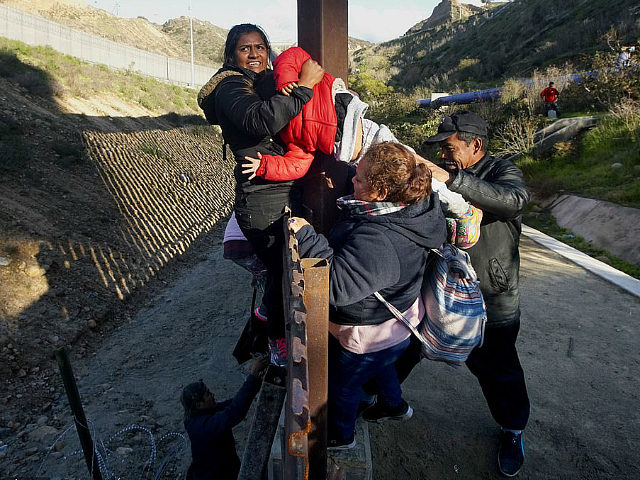Democrats in the July 30 CNN Democrat debate promised to welcome foreign migrants, and none mentioned migrants’ economic damage to blue-collar Americans’ wages and rents.
“Immigrants don’t diminish America, they are America,” said Minnesota Sen. Amy Klobuchar, who told Fox News in February 2019 that “we need workers” because unemployment was too low for business groups. “We have people all over the country who simply want to work and obey the law,” she said about the nation’s population of illegal immigrants.
“We need to expand legal immigration,” said Sen. Liz Warren. “We need to create a path for citizenship, not just for ‘dreamers’ but for grandmas, and for people who have worked in the farms and students who have overstayed their visas.”
She reaffirmed her promise to end decriminalization of illegal migration: “We cannot make it a crime when someone comes here.”
Migrants are Americans and should not be criminalized, argued Montana Gov. Steve Bullock. “You don’t have to decriminalize everything [but] what you have to do is have a president in there with the judgment and decency to treat someone who comes to the border like one of our own,” he said.
“If [migrants] are seeking asylum, of course, we want to welcome them. We’re a strong enough country to be able to welcome them,” said Ohio Rep. Tim Ryan.
“Americans wants comprehensive immigration reform … [with] protections for ‘Dreamers,’ [and] making sure we have a pathway to citizenship for the undocumented,” claimed Pete Buttigieg, using the establishment’s code phrase for mass amnesty.
Buttigieg also reaffirmed his promise to decriminalize illegal migration, saying: “If fraud is involved, that is suitable for the criminal statute — if not, then it should be handled under civil law.”
His White House would stop “criminally prosecuting families and children for seeking asylum and refuge,” promised Beto O’Rourke. “Asylum” is a legal term, complete with legal tests and deportation rules, but the term “refuge” suggests O’Rourke is making an open-ended promise of welcome.
O’Rourke also promised to decriminalize illegal migration: “I expect people who come here to follow our laws, and we reserve the right to prosecute them if they do not.”
“If a mother and a child walk thousands of miles on a dangerous path, in my view, they are not criminals,” said Sen. Bernie Sanders. “They are people fleeing violence.”
Immigration Numbers:
Each year, roughly four million young Americans join the workforce after graduating from high school or university. This total includes roughly 800,000 Americans who graduate with skilled degrees in business or health care, engineering or science, software or statistics.
But the federal government then imports about 1.1 million legal immigrants and refreshes a resident population of roughly 1.5 million white-collar visa workers — including approximately one million H-1B workers and spouses — plus roughly 500,000 blue-collar visa workers.
The government also prints out more than one million work permits for foreigners, tolerates about eight million illegal workers, and does not punish companies for employing the hundreds of thousands of illegal migrants who sneak across the border or overstay their legal visas each year.
This policy of inflating the labor supply boosts economic growth for investors because it transfers wages to investors and ensures that employers do not have to compete for American workers by offering higher wages and better working conditions.
This policy of flooding the market with cheap, foreign, white-collar graduates and blue-collar labor also shifts enormous wealth from young employees towards older investors, even as it also widens wealth gaps, reduces high-tech investment, increases state and local tax burdens, and hurts children’s schools and college educations.
The cheap-labor economic strategy also pushes Americans away from high-tech careers and sidelines millions of marginalized Americans, including many who are now struggling with fentanyl addictions. The labor policy also moves business investment and wealth from the heartland to the coastal cities, explodes rents and housing costs, shrivels real estate values in the Midwest, and rewards investors for creating low-tech, labor-intensive workplaces.

COMMENTS
Please let us know if you're having issues with commenting.